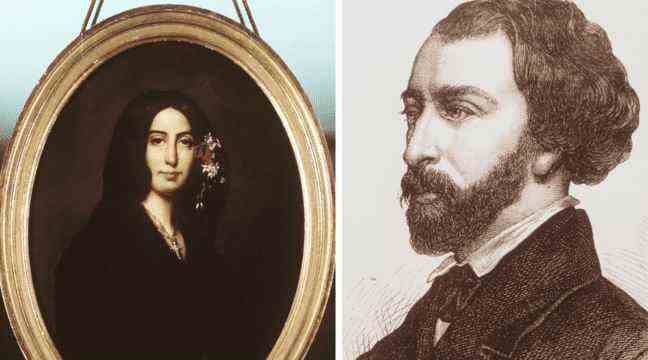It is one of the most famous liaisons of the 19th century. In 1833, the writer George Sand and the playwright Alfred de Musset begin a relationship, which will end for the first time in November 1834, before a definitive break in 1835. During their affair, the lovers correspond. Would George Sand go so far as to write a coded erotic letter? On the occasion of Valentine’s Day, Monday, a text attributed to the woman of letters was relayed on social networks. With this subtlety: reading every other line would reveal the author’s fiery intentions.
FAKE OFF
Several points cast doubt on the authenticity of this letter, explains to 20 minutes Olivier Bara, editor-in-chief of the journal George Sand notebooks “There is no original autograph handwritten version of this supposed letter,” he begins by recalling.
As for the tone and style of this text, they are very different from the texts of George Sand in our possession, points out Olivier Bara, who is also a professor of 19th century French literature and the performing arts at the University of Lyon 2: “In Sand’s private autograph manuscripts, letters or theater scripts played in Nohant with friends or family, scatological humor is very present but not libertine humor or literary games on sexuality. »
“If you want to read the expression of Sand’s erotic desire for Musset’s body”, this specialist recommends “looking into the Personal diary de Sand, in November 1834, at the time of the rupture with Musset”. Here is what it reads*: “My little supple and warm body, you will no longer stretch out on me, like Elisha on the dead child, to revive me. (…) Goodbye my blond hair, goodbye my white shoulders, goodbye everything I loved, everything that was mine. I will kiss now in my ardent nights the trunks of the fir trees and the rocks in the forests while shouting your name, and, when I will have dreamed the pleasure, I will fall fainting on the damp ground. »
* This excerpt comes from Autobiographical workseditions Georges Lubin, Gallimard, Pléiade, volume II, page 963.

